Search Images
Browse Content (p. 1392)
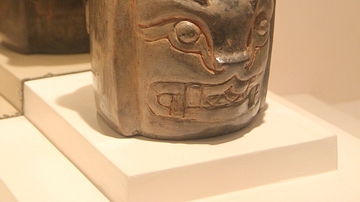
Image
Cupisnique Anthropomorphic Feline
From the Formative Epoch (c. 1250 BCE - c. 1 CE). On Earth, the supreme leaders of this society assumed the power of the feline. The great religious, political, and economic power they accumulated enabled the development of more efficient...

Image
Goryeo Dynasty Bronze Coin
A bronze coin of the Korean Goryeo Dynasty. The legend reads: Tongguk tongbo,
meaning 'Coin of the Eastern Kingdom' (Korea). 1097-1105 CE. (British Musem, London)
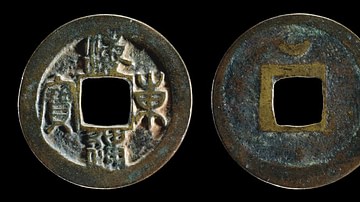
Image
Bronze Korean Coin, Goryeo Dynasty
A bronze coin of the Korean Goryeo Dynasty, 1097-1105.
The legend reads: Haedong tongbo meaning 'Coin of the Land East of the Sea' (Korea).
The British Musem, London.
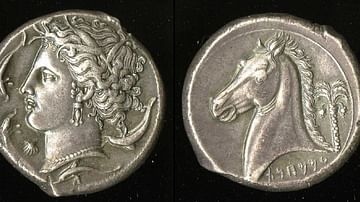
Image
Carthaginian Silver Tetradrachm
A silver tetradrachm minted in Carthage, 330-300 BCE. Obv.: head of the goddess Tanit with dolphins. Rev. : horse's head and palm tree. The legend reads 'm mhnt' meaning 'people of the camp', that is army camp. Many such coins were minted...
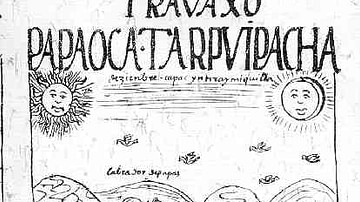
Image
Inca Farmers
A colonial-era illustration depicting Inca farmers using traditional tools such as the foot plough. By the native chronicler Felipe Guaman Poma de Ayala, c. 1613 CE.

Image
Game of Senet
A game box and pieces for playing the game of senet, found within the intact KV62 tomb of King Tutankhamun, 18th Dynasty, New Kingdom of Egypt.
Cairo Museum of Egypt. Photo taken at King Tut Exhibit, Seattle, 2012.
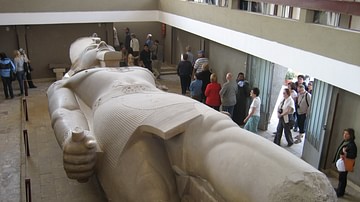
Image
Colossus of Ramesses II
Colossus of Ramesses II in Memphis, Egypt.
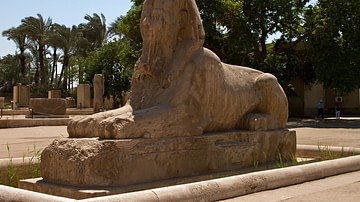
Image
Alabaster Sphinx in Memphis
Alabaster sphinx in Memphis, Egypt.
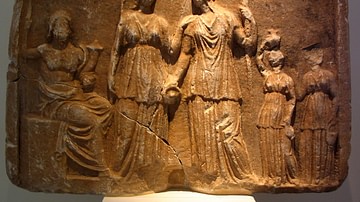
Image
Persephone, Demeter, & Pluto Marble Plaque, Tegea.
A marble plaque from Tegea depicting Pluto, Demeter and Persephone with worshippers. 4th-3rd century BCE. (National Archaeological Musem, Athens)
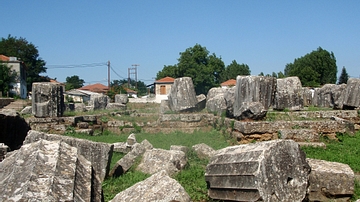
Image
Temple of Athena Alea, Tegea
Column drums and the stylobate of the 4th century BCE temple of Athena at Tegea in the Peloponnese. Originally the temple had 6 x 14 columns and was part of the sanctuary dedicated to Athena Alea.